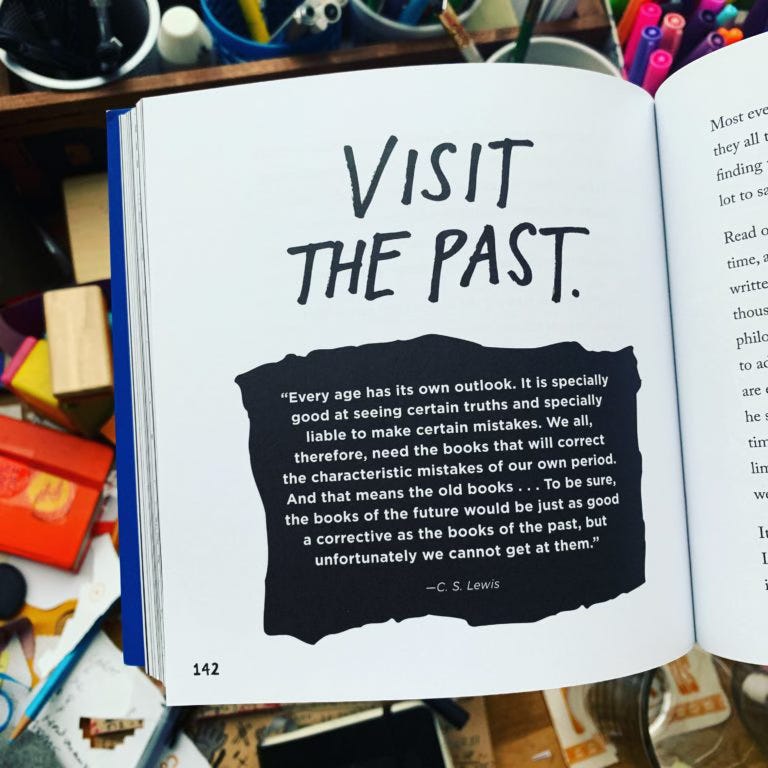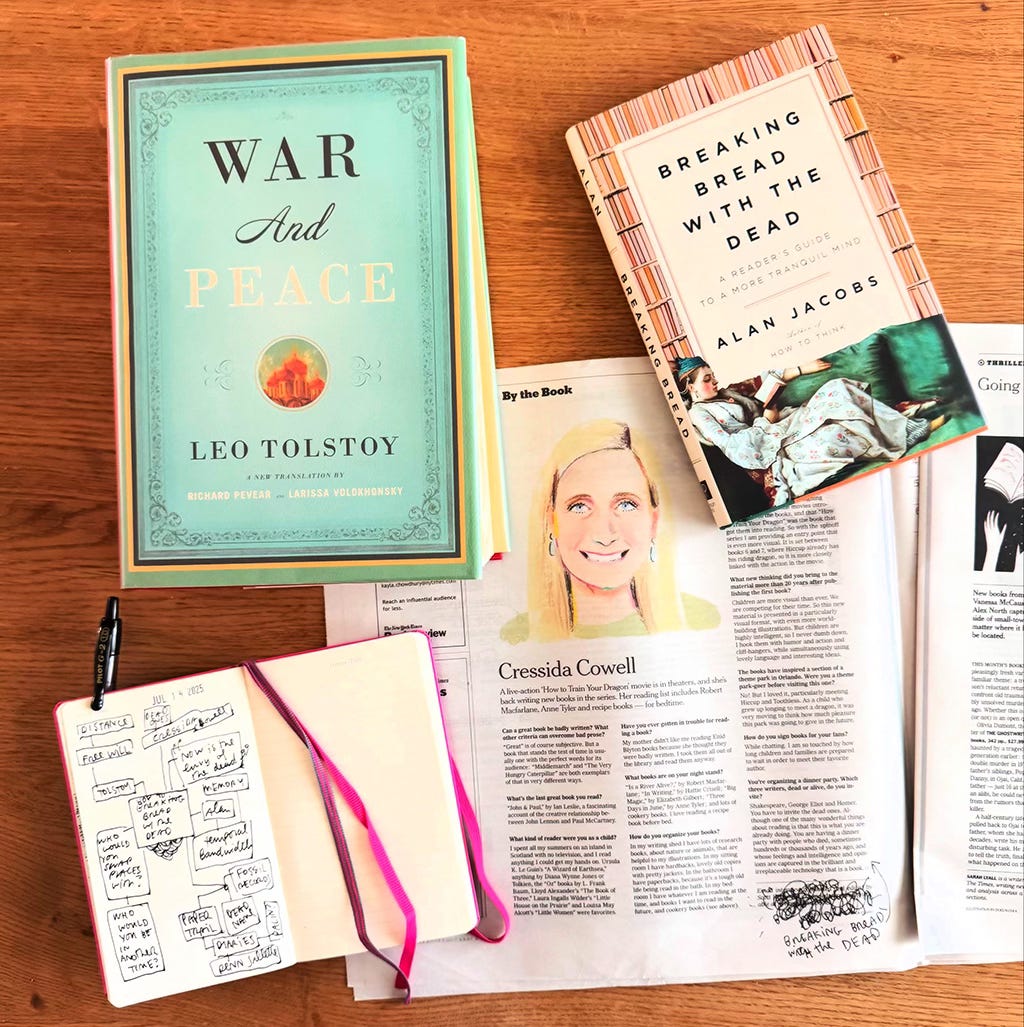Breaking bread with the dead
Old books are time machines
“The past is a foreign country: they do things differently there.”
—L.P. Hartley, The Go-Between
Hey y’all,
One of the first things I like to read in the Sunday NYTimes is the Book Review’s “By The Book” series. One of their favorite interview questions is: “You’re organizing a dinner party. Which three writers, dead or alive, do you invite?”
Cressida Cowell, author of How To Train Your Dragon, recently answered:
Shakespeare, George Eliot and Homer, if such a person ever existed (it’s a bit contentious, that one). You have to invite the dead ones. Although one of the many wonderful things about reading is that this is what you are already doing. You are having a dinner party with people who died, sometimes hundreds or even thousands of years ago, and whose voices and feelings and intelligence and opinions are all captured in the extraordinarily brilliant and irreplaceable technology that is a book. Now that really is magic.
The poet W.H. Auden called this “breaking bread with the dead.”
I spent five weeks this summer breaking bread with Leo Tolstoy, who’s been dead for one hundred and fifteen years. While reading War and Peace, I marveled over and over again at how something written so long ago can be so applicable to our times while still being very much of its own time.

Here’s how Auden explained it in his essay “Some Reflections on the Arts”:
Every genuine work of art exhibits two qualities, Nowness—an art-historian can assign at least an approximate date to its making—and Permanence—it remains on hand in the world long after its maker and his society have ceased to exist.
* * *
This means that, in the history of Art, unlike the history of Science, though there are periods of flowering and sterility, there is no such thing as Progress, only Change. Shakespeare does not supersede Aeschylus or Mozart Moteverdi, in the way that the Copernican picture of the Cosmos, for example, superseded the Ptolemaic.
* * *
Consequently, one of the greatest blessings conferred on our lives by the Arts is that they are our chief means of breaking bread with the dead, and I think that, without communication with the dead, a fully human life is not possible.
My friend Alan Jacobs wrote a whole book about it called, you guessed it, Breaking Bread With The Dead. I remember being at lunch with Alan and encouraging him to push through with the project, not for his own good, but for mine, as I really wanted to read it. My blurb: “a beautiful case for reading old books as a way to cultivate personal depth in shallow times.”
On the one hand, reading old books is a luxurious escape from your contemporary moment. On the other hand, it expands you in ways that make you more equipped to deal with your contemporary moment.
Keep reading with a 7-day free trial
Subscribe to Austin Kleon to keep reading this post and get 7 days of free access to the full post archives.



